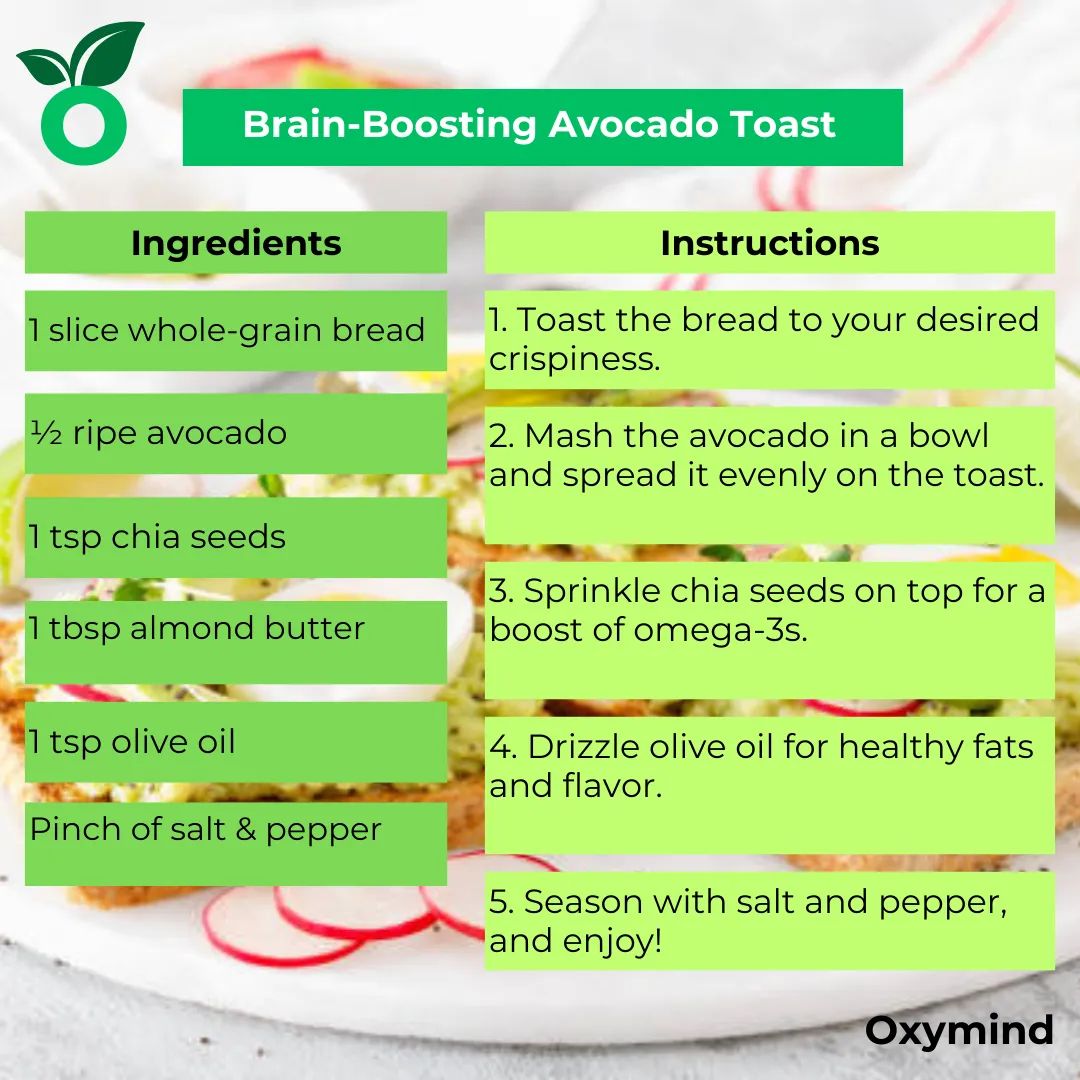- The Oxymind
- Posts
- Sleep & Mental Health: The Foundation Of Wellbeing
Sleep & Mental Health: The Foundation Of Wellbeing
The nightly reset your brain desperately needs.

Dear Oxymind Readers
In Today’s Edition
Sleep & Mental Health
Recipe of the week: Colorful Buddha Bowl
From Stress to Success: 4 Keys to a Healthier Business
Resource of the Week
The Productivity Hack: Manage Stress with Time-Blocking

Sleep and mental health connection
Sleep & Mental Health
Welcome to this week's deep dive into what might be the most underrated pillar of health—quality sleep. As Mahatma Gandhi wisely noted, "Each night, when I go to sleep, I die. And the next morning, when I wake up, I'm reborn." This issue explores the profound connection between sleep and mental health, offering insights that might forever change how you think about those hours with your eyes closed.
THE SCIENCE: WHY SLEEP MATTERS
Americans are sleeping significantly less than previous generations—averaging only 6.9 hours per night compared to 7.9 hours in 1942 (a 13% decrease). This decline may explain why so many of us feel perpetually tired.
Despite making us vulnerable (we can't find food, defend ourselves, or reproduce while sleeping), sleep has persisted through evolution for virtually all animals. This persistence strongly suggests sleep serves critical biological functions that outweigh these risks.
"Sleep is the foundation on which the other two pillars of diet and exercise sit when it comes to good health."
The Hard Numbers: Sleep & Mental Health

Approximately 50-70 million US adults have chronic sleep disorders
35% of adults report sleeping less than 7 hours per night
People with insomnia are 10 times more likely to develop depression
83% of people with depression experience sleep disturbances
Just five nights of sleeping 5 or fewer hours can decrease testosterone levels significantly
Sleep deprivation increases anxiety risk by 30%
After 24 hours without sleep, cognitive performance drops to levels equivalent to having a blood alcohol level of 0.10%
The Two-Way Relationship
The connection between sleep and mental health works bidirectionally:
Poor sleep exacerbates anxiety, depression, and stress sensitivity
Mental health conditions disrupt sleep patterns and architecture
Both share common neurobiological mechanisms, including disruptions to the amygdala, prefrontal cortex, and neurotransmitter systems
Case Study: Jamie, a 34-year-old marketing executive, battled anxiety for years with limited success despite therapy and medication. After working with a sleep specialist who diagnosed and treated her unrecognized sleep apnea, her anxiety symptoms decreased by nearly 70% within three months.
PRACTICAL WISDOM: BUILDING YOUR EVENING ROUTINE

3 Hours Before Bed:
Close the Food Cabinet - Your body can't focus on restoration if it's digesting late-night ice cream
Finish Exercise - Complete workouts earlier to prevent stimulation and elevated body temperature
Say Goodnight to Alcohol - Despite its sedative effects, alcohol significantly disrupts sleep quality
2 Hours Before Bed:
Limit Fluid Intake - Reduce nighttime bathroom trips
Set the Mood - Switch to warm, dim lighting to signal your body to prepare for sleep
End Screen Time - Reduce blue light exposure from devices
Avoid Intense Entertainment - Skip horror movies or stressful content that spike cortisol levels
1 Hour Before Bed:
Take a Warm Shower/Bath - Helps lower your body temperature
Practice Deep Breathing - Calm your mind with meditation or gentle stretches
Write Down Tomorrow's Concerns - Transfer worries from mind to paper to prevent rumination
Editor's Experiment: I tried the "brain dump" technique for one week, writing down everything on my mind before bed. The result? My sleep tracker showed I fell asleep 15 minutes faster on average and experienced 20% fewer nighttime awakenings.
SPOTLIGHT: SLEEPING WITH A PARTNER
The growing trend of "sleep separation" is worth considering if you share a bed. Approximately 25% of all couples now sleep in different rooms, with over one-third waking up separately. This practice is especially common among Millennials, with 43% prioritizing quality sleep over nighttime cuddling (compared to just 22% of Boomers).
How Poor Sleep Affects Relationships:
Increased frequency of arguments
Decreased empathy for partners
Shorter emotional fuse and greater frustration
Disrupted hormonal balance affecting intimacy
Sleep deprivation doesn't just make you tired—it transforms your relationship. Couples who are sleep-deprived fight more and show less empathy. Chronic fatigue puts us in survival mode, where there's little energy for connection or intimacy.
Relationship Expert Says: "The irony is that many couples sleep together to feel closer, but end up disconnected during waking hours due to poor sleep quality. Sometimes the most loving thing you can do is prioritize rest so you can be fully present when you're together."
Finding Balance:
Consider these approaches if you're struggling with sleep compatibility:
The "Scandinavian method" of side-by-side beds for cover-stealing or movement issues
Medical interventions like CPAP machines for snoring or sleep apnea
Separate rooms for different sleep schedules
Maintaining connection through goodnight kisses and morning cuddles
Interestingly, research shows couples naturally tend to align their sleep schedules when sharing a bed. This synchronization extends to body temperatures dropping simultaneously (by about 1.8°F), which is essential for quality sleep and may even put partners on the same dream cycle.
SLEEP ENVIRONMENT ESSENTIALS
Creating the optimal sleep environment can dramatically improve sleep quality. Consider investing in:
Quality Pillow - Look for options with proper support and cooling properties
Clean, Comfortable Mattress - Don't compromise on where you spend a third of your life
Breathable Sheets - Materials like bamboo can help regulate temperature
SensaCalm Weighted Blankets: Designed to provide comfort and reduce anxiety, these blankets can be a soothing addition to your self-care routine.
Light Alarm Clock - Did you know that waking up to light is more refreshing than waking up to sound? Wake up naturally with gradually increasing light rather than jarring sounds
Blackout Curtains - Even minimal light exposure can disrupt melatonin production
White Noise Machine - Block disruptive sounds and create a consistent sound environment
Reader Tip: "I started keeping my room at 65°F (18°C) at night after reading that cooler temperatures improve sleep quality. My sleep tracker shows I'm getting 40 minutes more deep sleep on average!"
THE MENTAL HEALTH CONNECTION: BEYOND FEELING TIRED
Poor sleep doesn't just leave you groggy—it fundamentally alters brain function in ways that mimic or worsen mental health conditions:
Emotional Regulation: Sleep deprivation amplifies the amygdala's response to negative stimuli by up to 60%, making emotional control significantly harder
Stress Response: Just one night of poor sleep can increase cortisol levels by 37% the following evening
Memory Consolidation: REM sleep is crucial for processing emotional memories; disruption can leave traumatic experiences inadequately processed
Cognitive Distortions: Sleep-deprived individuals are more likely to interpret neutral situations negatively and catastrophize minor problems
Think of sleep as your brain's nightly therapy session—without it, emotional processing gets backlogged, creating a cognitive and emotional debt that compounds over time.
From Stress to Success: 4 Keys to a Healthier Business
You didn’t start your business to work 24/7 and burn out—you started it for freedom. But somewhere along the way, it started feeling like a never-ending grind. The good news? Those struggles aren’t just “part of the game”—they’re fixable. Whether you want to grow, sell, or just breathe again, here are four game-changing shifts you need to make:
1️⃣ Fix Cash Flow, Not Just Revenue – Making money isn’t the same as keeping it. If your business is bringing in revenue but still feels financially tight, it’s time to measure, manage, and systematize your cash flow.
2️⃣ Systematize or Stay Stuck – Scaling isn’t about working harder; it’s about working smarter. SOPs, automations, and repeatable processes = fewer headaches and a business that doesn’t rely on you 24/7.
3️⃣ Build a Sales Pipeline, Not a Panic Button – If your revenue is a rollercoaster, your marketing isn’t consistent. Don’t wait until things slow down to find customers—create a steady lead engine that keeps business flowing.
4️⃣ Stop Being the Business’s Lifeline – If your company falls apart when you take a vacation, you don’t have a business—you have a job. Document, delegate, and design a structure that doesn’t depend on you for every little thing.
If you’re tired of your business owning you instead of the other way around, it’s time to scale smarter. Let’s make that happen. 🚀
Recipe of the week: Brain-Boosting Avocado Toast

Resource of the Week
Genius Wave: A neuroscience-based device that uses sound waves to promote relaxation and mental clarity, aiding healing.
Mindfulness: Everyday guided practice and meditation to help you deal with anxiety and overwhelm
Online Therapy Platforms: Services like Everyday Yoga and Talkspace offer accessible counseling options for those seeking professional support.
The Productivity Hack: Manage Stress with Time-Blocking
If you often find yourself overwhelmed by a never-ending to-do list, time-blocking might be the productivity hack you need.
What is Time-Blocking?
Time-blocking is a method where you divide your day into blocks of time, each dedicated to a specific task or group of tasks. Instead of jumping between different projects or responding to emails as they come, you focus on one thing at a time.
How to Start Time-Blocking:
List Your Priorities: At the start of the day, write down your key tasks. Break them into smaller, manageable parts if necessary.
Assign Time Blocks: Allocate specific chunks of time to each task. For example, 9:00-10:00 AM might be for email, 10:00-12:00 PM for a major project, etc.
Stick to the Schedule: Treat each time block as an appointment. Focus on the task at hand without distractions. When the time is up, move on to the next block.
Include Breaks: Don’t forget to schedule short breaks between tasks to avoid burnout.
Why It Works:
It reduces decision fatigue because you’re not constantly deciding what to work on next.
It minimizes distractions, leading to deeper focus.
It helps you manage stress by creating a structure for your day.
Start small by blocking just a couple of hours, and see how it changes your workflow. It’s a simple tweak, but one that can help you get more done without the overwhelm
Here's to better nights and brighter days,
Bolaji
The Oxymind
Next Issue Preview: We'll explore the connection between nutrition and mood stability—how what you eat directly impacts how you feel.
Have a sleep tip that works for you? Share it with us by replying to this email!
/